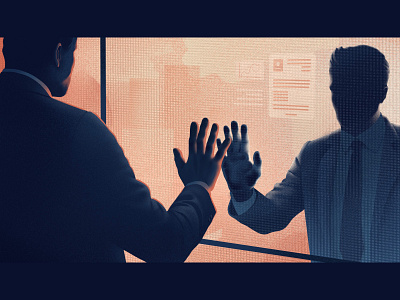Automated Decision-Making
Commissioned by Intelligenztest Podcast for their fourth episode that explores the concept of automated decision-making and how it affects our lives on an everyday basis.
“My guest, Ralph Müller-Eiselt from the German Bertelsmann Foundation, believes that, in many situations, automated decision-making can lead to fairer and better decisions. E. g. a computer algorithm preselecting job applications can find candidates who do not have a degree from a prestigious university but bring important personal skills that an HR manager might overlook. Such algorithms could also mitigate human prejudice that is part of every hiring process.
On the other hand, algorithms can also reinforce discrimination and a lack of transparency makes it very hard to understand and challenge automated decisions.
In the end, Müller-Eiselt says, whenever we build an automated decision-making system, we have to be very clear and transparent about our goals in order to make sure that the system actually does what we think it should do. Thus, Müller-Eiselt argues, building a decision-making algorithm can be an opportunity to reflect on and critically assess the way we take important decisions as humans. I think that is probably the most important point of the episode, that creating a computer algorithm that impacts people's lives can be an opportunity to think about how fair and transparent the decisions are that we as humans take. It can be like a mirror: we can delegate decisions to a machine only if we truly understand how we make decisions as humans.
Müller-Eiselt also thinks that we need a public debate about these systems. This does not mean that everyone must understand the technical details but we have to discuss the purposes and goals we want to use automated decision-making systems for. When I asked him if this debate doesn’t come way too late he said, not at all! It took us roughly 100 years since the invention of the car before seat belts have been declared mandatory – and we still haven’t solved the problem of greenhouse gas emissions. In other words: society needs time to adapt to new technologies and find ways to apply them safely and to the benefit of all. I think that’s a fair point. “
Listen to Intelligenztest on Spotify.
